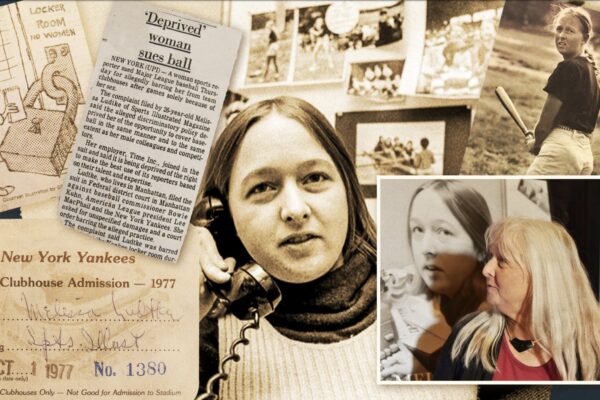By Christopher Wright
Sports Capital Journalism Program
HOUSTON – Lamont Butler was running out of space, and the San Diego State Aztecs were running out of time. Trailing Florida Atlantic by a point as the final seconds ticked away, with a spot in the national championship game at stake, Butler followed the instructions of coach Brian Dutcher. There would not be a timeout. He took a pass from Nathan Mensah, pushed the ball up the right side of the court, and headed toward the right baseline where he was met by Owl freshman Nick Boyd.
With the clock perilously close to the end, Butler made the play that extended his team’s season to a championship night.
“Once I looked up,” he said, “it was two seconds left. I knew I had to make a shot.
“I got to a shot I’m comfortable with.”
Butler switched his dribble to his left hand. He moved to his left to create just enough space to launch the buzzer-beating jump shot over Boyd that gave the Aztecs a 72-71 victory and a spot in the school’s first national championship game.
San Diego State (32-6) will meet Connecticut on Monday night. The Aztecs, who trailed 56-42 with 13:53 to play, produced the third-largest comeback in a men’s national semifinal game, behind Duke’s 22-point rally against Maryland in 2001 and Seton Hall’s 18-point surge against Duke in 1989.
Florida Atlantic (35-4) had led for a stretch of 27:48 before the shot, and held the lead for 31:42 overall. San Diego State led for just 6:34.
Butler, a junior guard, scored nine points and made three of six shots. Matt Bradley, a senior guard, led the Aztecs with 21 points.
Florida Atlantic was led by sophomore guard Alijah Martin, who scored 26 points with seven rebounds.
Darrion Trammell, the senior Aztec guard who is often the late-game option for the Aztecs, said, “I’m not surprised that Lamont made that shot. That dude works…I appreciate him so much.”
Bradley had been replaced with 36 seconds to go, when Florida Atlantic had the ball and the lead. San Diego State had one timeout left, but when sophomore guard Johnell Davis of the Owls missed a layup with nine seconds to go and Mensah delivered the pass to Butler, the decision had already been made.
Bradley remembered: “Coach Dutch, he said in the huddle, he was like, ‘Do you want to call a timeout?’ He said, ‘No. We’re going to get a stop, we’re going to push it and we’re going to win this game.’ That’s what Dutch said and that’s what we did.”
When asked about the substitution, Bradley said, “I had full trust in my teammates, there was no envy. I tip my hat to my coaches because they’ve been doing that all season, pulling guys in and out.”
The 40 points Florida Atlantic scored in the first half tied for the second-highest total allowed by San Diego State in a first half this season. Before Saturday’s game, the Owls had a 27-1 record in games they led at halftime. The Aztecs had won eight of the previous 10 games when they trailed at halftime.
On the comeback, the Aztecs’ Micah Parrish said, “They came out really strong, so we have to give credit to them … We weren’t being ourselves in the first half. We just had to change it and bring some intensity in the second half.”
One of Florida Atlantic’s strengths throughout the tournament was its rebounding prowess, winning the rebound battle in each of their four victories. San Diego State had 12 offensive rebounds, four more than the Owls, with nine of those offensive rebounds coming between the 6:44 and 2:37 marks in the second period.
Giancarlo Rosado, a sophomore forward for the Owls, said, “They were hungrier than us on the defensive end. They got rebounds. They did what they do well, and we didn’t.”
Vladislav Goldin, a 7-foot-1 sophomore center, scored five points with four rebounds and made just one of five free throws.
Mensah said Dutcher made an adjustment at halftime that limited Goldin. “Just don’t let him get the ball close [to the basket],” Mensah said. “Each time he got the ball close he either got a basket or a foul.”
Florida Atlantic had been the ninth team seeded ninth or lower to reach the Final Four since the seeding process began in 1979. The Owls had been the fifth team to reach the Final Four after never winning a tournament game, the first since George Mason in 2006. The Owls had won four times by a combined margin of 19 points.
And believed to the end they would do it again.
“I was thinking that we were going to get the stop,” said senior guard Michael Forrest. “I had all faith in all five guys on the court. (Butler) came down and hit a tough shot. I can live with it. It was a tough shot.”


